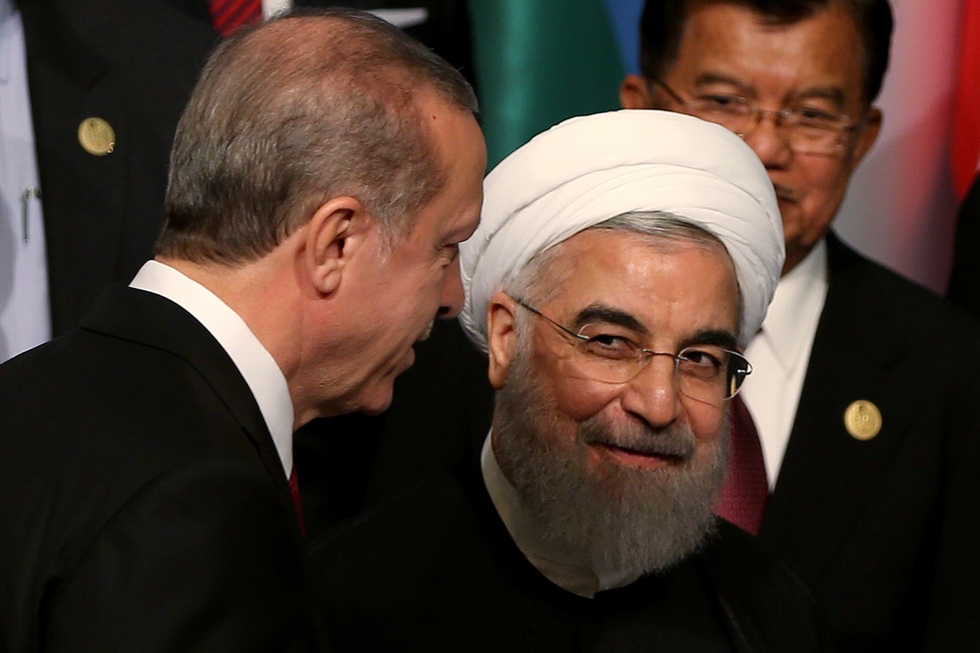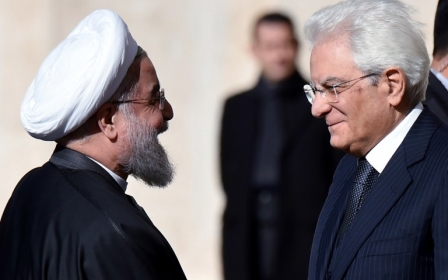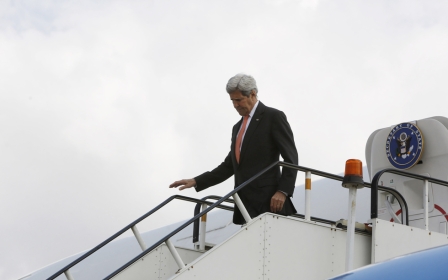Iran condemned at pan-Islamic summit for 'supporting terrorism'

A major summit aimed at overcoming differences in the Muslim world has condemned Iran for supporting terrorism and meddling in the affairs of other countries.
Iranian President Hassan Rouhani, who had been at the two-day Istanbul conference along with more than 30 other heads of state and government from Islamic-majority countries, did not attend the closing meeting in protest at the criticisms.
"The conference deplored Iran’s interference in the internal affairs of the states of the region and other member states including Bahrain, Yemen, Syria, and Somalia, and its continued support for terrorism," said the summit's final statement.
It also "condemned Hezbollah for conducting terrorist activities in Syria, Bahrain, Kuwait and Yemen and for supporting terrorist movements and groups undermining the security and stability of OIC member states".
The Arab League declared Iran's ally Hezbollah a "terrorist" group in March after Gulf kingdoms did the same earlier in the month over the movement's support for Syrian President Bashar al-Assad.
Salman Dosri, an analyst, told Al Arabiya News Channel that it is the “first time” that the summit has denounced a group linked to Iran in this manner.
The announcement came a day after Rouhani called on delegates to promote unity.
"No message which would fuel division in the Islamic community should come out of the conference," said Rouhani, according to Iranian media.
Turkish President Recep Tayyip Erdogan had also implored leaders to work to end sectarian tensions.
“I believe the greatest challenge we need to surmount is sectarianism," Erdogan said on Thursday. "My religion is not that of Sunnis, of Shia. My religion is Islam.
“We should be uniting. Out of the conflicts, the tyranny, only the Muslims suffer,” he said, while stressing he wanted the summit to be a “turning point” for the Islamic world.
There was a security lockdown around the summit venue in Istanbul, the former capital of the Ottoman Empire from where Sultans for centuries ruled Muslims from the Balkans to Arabia.
Turkey has been on high alert following attacks claimed by the Islamic State group and increased violence linked to the Kurdish conflict.
While the summit marked one of Istanbul's most significant gatherings of heads of state for years, some high-profile leaders like Jordan's King Abdullah and Egyptian President Abdel Fattah al-Sisi were notable by their absence.
Turkey's relations with Cairo have still not recovered from the 2013 ousting of Islamist president Mohamed Morsi, a close ally of Ankara, while ties with Amman are being tested by differences over Syria.
Iran's Rouhani is due to meet Erdogan in Ankara on Saturday.
New MEE newsletter: Jerusalem Dispatch
Sign up to get the latest insights and analysis on Israel-Palestine, alongside Turkey Unpacked and other MEE newsletters
Middle East Eye delivers independent and unrivalled coverage and analysis of the Middle East, North Africa and beyond. To learn more about republishing this content and the associated fees, please fill out this form. More about MEE can be found here.




